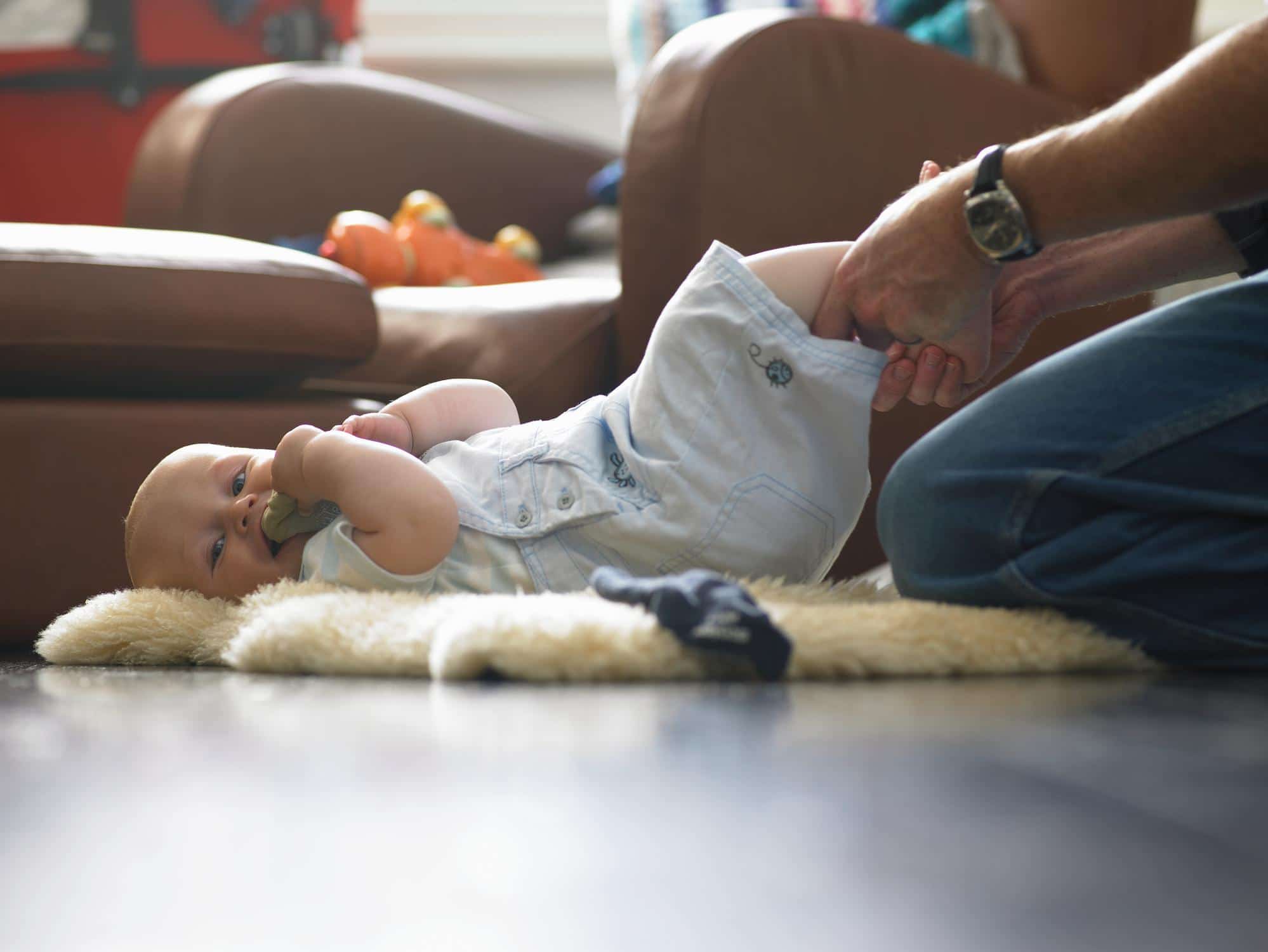

Babies haven’t spent a lot of time on the planet, but apparently it’s still enough time to be exposed to lots of plastic.
A new study published in Environmental Science and Technology Letters Wednesday found an average of 36,000 nanograms of polyethylene terephthalate (PET) microplastics (MP) per gram of infant feces, compared to 2,600 nanograms for adults.
“Our study suggests that infants are exposed to higher levels of MPs than adults,” the authors wrote.
Microplastics are what happens when plastics break down in the environment into bits less than five millimeters long, Wired explained. They have been found everywhere from Mount Everest to the ocean floor, but the researchers wanted to test exposure in infants.
To do this, they collected dirty diapers from six one year olds and filtered the poop for microplastics, Wired explained. They also tested three samples of meconium, an infant’s first feces, and 10 adult stool samples. They tested all of the samples for two types of microplastics: PET, which is used in clothing and plastic bottles, and polycarbonate (PC) plastic, an alternative to glass.
Some of the meconium samples had up to 12,000 nanograms per gram of PET and 110 nanograms per gram of PC plastic, the study authors wrote. Microplastics were found in all of the infant samples, however, averaging 36,000 nanograms per gram for PET and 78 nanograms per gram for PC. Most of the adult stool samples had PET and all had PC, but at much lower concentrations than the infant stool samples. The researchers were then able to use their data to estimate the average daily exposure to microplastics in both adult and infant diets. They calculated that infants are exposed to 83,000 nanograms of PET per kilogram of body weight and 860 nanograms of PC per kilogram of body weight. Adults, on the other hand, were exposed to 5,800 nanograms of PET and 200 nanograms of PC.
In some ways, this is not surprising. A study published last year found that the process of preparing baby formula in plastic bottles prompted those bottles to shed microplastics, so that infants could be swallowing millions of microplastics every day. Microplastics have also been found in placenta, as The Guardian reported in 2020.
Babies also have a tendency to stick plastic toys or clothing that may contain microplastic fibers in their mouths, Wired noted. Baby foods are often wrapped in plastic and many baby utensils, like sippy cups, are made from plastic. The indoor environment is also full of plastics from carpeting and dust.
“Unfortunately, with the modern lifestyle, babies are exposed to so many different things for which we don’t know what kind of effect they can have later in their life,” study co-author and New York University School of Medicine environmental health scientist Kurunthachalam Kannan told Wired.
Right now, scientists still aren’t sure what the impact of ingesting microplastics is for humans. The main concern is the chemicals that microplastics contain, which can either be part of their manufacturing or adhere to them in the environment. One worrying class are endocrine-disrupting chemicals that can impact reproductive, metabolic and neurological health. This is a big deal for infants because their endocrine system is still developing.
“I strongly believe that these chemicals do affect early life stages,” Kannan told Wired. “That’s a vulnerable period.”
Parents who want to protect their newborn babies can take the following steps, Wired said:
- Don’t heat formula in a plastic bottle. Heat it in a glass bottle and move it to a plastic bottle once it is at room temperature.
- Vacuum and sweep frequently to remove microplastics from the floor.
- Avoid plastic wrapping and containers.

 233k
233k  41k
41k  Subscribe
Subscribe 